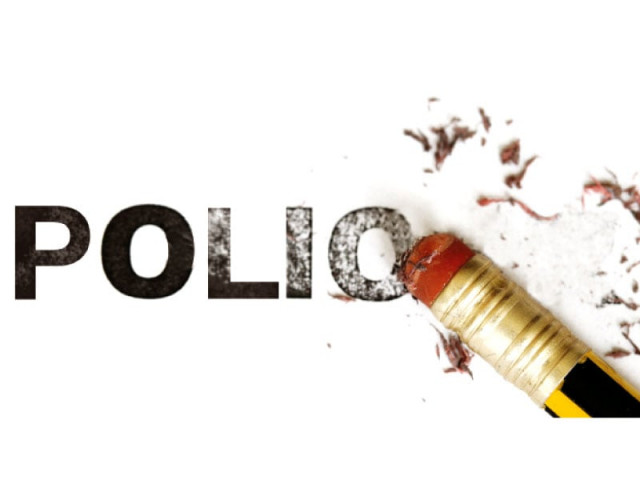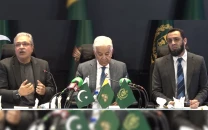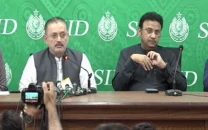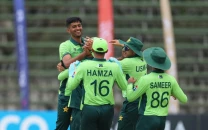Operational costs weigh heavily on anti-polio push
Only Rs9.7b out of Rs27.5b spent on vaccine procurement.

Running a polio eradication initiative is no mean feat. Within its massive head, only about one-third goes into the actual procurement of vaccines.
That’s the easy part.
The rest is be provided to two United Nations agencies and a govt body as ‘operational costs’ – ie, the cost of surveying the areas and millions of households to be targeted across Pakistan and then actually delivering the medicines to the millions of households over a span of three years.
In Pakistan, two international agencies will be paid the largest chunk to undertake this process.
The polio vaccine procurement cost of the three-year Emergency Plan for Polio Eradication stands at $106.6 million, or Rs9.7 billion – 35% of the total Rs27.5 billion earmarked for the recently cleared three-year campaign programme – which seeks to eliminate polio by 2015.
Official documents show that more than 50% of the total programme cost will go to two foreign organisations – the World Health Organisation (WHO), which is responsible for operations and surveillance, and the United Nations Children’s Fund (Unicef), responsible for vaccine procurement and communication.
WHO will have the larger share of the pie, charging a total of $86.5 million or Rs7.9 billion –28.9% of the total programme cost. Similarly, the Unicef is charging $67.3 million or Rs6.2 billion – 22.3 % of the total cost.
To finance the project, the federal government has almost finalised a loan agreement with the Islamic Development Bank for the provision of $227.2 million or Rs20.7 billion. The IDB will charge a 5.1% markup. The World Bank will also provide a loan of $24 million for the programme.
Despite the huge allocation for the emergency programme, experts say its success hinges on the success of ongoing polio campaigns. They are of the opinion that unless routine coverage increases to 90% from the existing below 45%, the emergency programme will not succeed.

The programme was recently cleared by at meeting of the Central Development Working Party, headed by Planning Commission Deputy Chairman Dr Nadeemul Haque. It will become operational from January next year.
The stated objective of the emergency programme is to stop wild poliovirus transmission throughout the country.
As many as 33.4 million children under the age of five are targeted under this programme.
UNCIEF
Unicef will charge $21.1 million, or roughly Rs2 billion, as social mobilisation cost and another $36.2 million, or Rs3.3 billion, as “ongoing social mobilisation” cost. Furthermore, it will charge “7% for programme support cost” ($4.9 million) and another “9% for programme support cost” ($5.2 million).
An official working closely on the programme said that the 9% additional cost was unfair and needed to be settled. The agency is also charging 4.5% as procurement services charges.
World Health Organisation
WHO is charging roughly $73 million, or Rs6.6 billion, as operational cost and $8.8 million as surveillance cost. It is also charging $4.9 million or 7% of the total amount as programme support cost.
Officials added that, since 1994, WHO has established its surveillance networks at district levels, which the government has decided to use. However, despite years of surveillance, polio coverage remains behind the targets, highlighting issues in monitoring.
In addition to the international agencies’ charges, the government has also earmarked $36.1 million, or Rs3.2 billion for its own operational cost.
PM’s Polio Monitoring Cell
The PM’s Polio Cell is allocated $1.1 million, or Rs98.7 million, as operational cost. An amount of Rs38.9 million is allocated for holding meetings and conferences, while telephone bills for three years have been estimated at Rs2 million. An amount of Rs400,000 has been fixed for gifts, while Rs10.3 million has been allocated to the PM’s Cell for running vehicles.
Published in The Express Tribune, November 28th, 2012.


















COMMENTS
Comments are moderated and generally will be posted if they are on-topic and not abusive.
For more information, please see our Comments FAQ